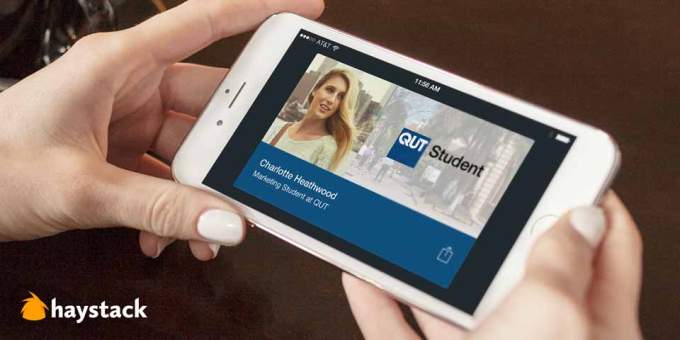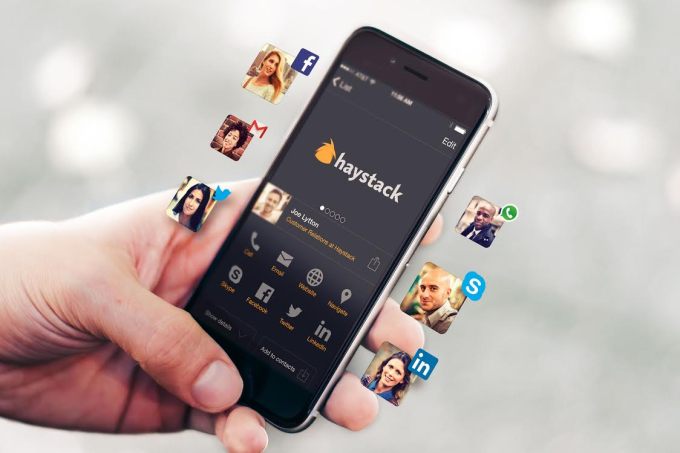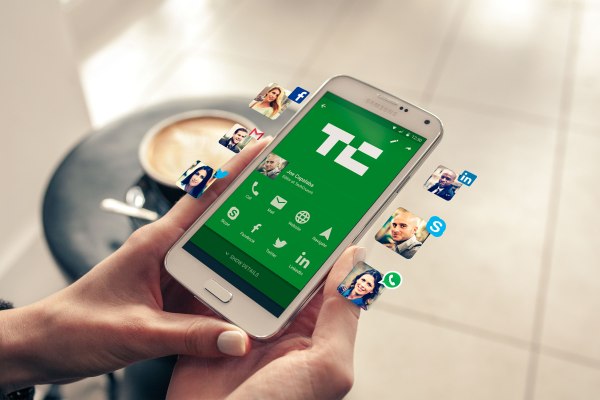Over the years, a number of startups have attempted to kill the business card, but these antiquated pieces of paper have managed to stick around, despite our move to a digital age. However, that doesn’t mean people will stop trying to end the reign of the business card once and for all. The latest example? A newly launched mobile application called Haystack which allows users to not only create their own digital card, but also scan and store the cards given to them.
Prior to today’s launch in the U.S., Canada and the U.K., Haystack’s app has been in beta testing in Australia for several months. There it has already grown to include 3,000 businesses on its service (and even more users), even though the team only marketed the app in the city of Brisbane, where founder Ran Heimann is based.
Heimann says he was motivated to try his hand at creating an app to displace the business card after spending years working as a consultant at PricewaterhouseCoopers, where he and his colleagues were heavy users of business cards.
While some of the apps that have launched in this space have tried to ignore the fact that paper business cards still exist, what’s interesting about the new Haystack app is that it allows you to transition from the world of paper-based cards to digital. That is, instead of ignoring the fact that you’re still going to have to deal with receiving physical business cards, it offers you a way to import them into your phone simply by snapping a photo.

The app scanning functionality in Haystack isn’t comparable to competitors like CamCard from what I found, as in several cases it wasn’t able to identify the text on the card itself. That being said, it does have a few cool tricks up its sleeve. For starters, it has you verify the email address on the scanned card, and if the company is online, it finds its logo and uses that to create the digital version of the card to store in the app.
Additionally, Haystack will tap into crowdsourcing to build out its contacts database, so that the digital cards will update automatically if the card’s owner or a trusted contact updates that contact’s information on the service.
That means the more people using Haystack, the better it becomes at identifying contacts by email address and creating their digital business cards automatically. However, stresses Heimann, it won’t display this information to just anyone – information like a person’s phone number and email are kept private unless you have their physical card or have been sent their digital card via the app.

To transition users away from business cards, Haystack lets you build your own digital card just by entering in your email. The app then “auto-brands” your card for you using the logo it finds online and you can enter in the details you want to share, including also your accounts on various social networks.
You can share your digital card with others by sending it through email or text right from the app, and if the recipient is not using Haystack (as they’re likely not), they’ll be directed to a webpage instead where they can choose to download the card in the correct format for their device.
While Heimann is hopeful that Haystack will be the app that helps to put business cards to rest for good, I’m less optimistic. As he noted himself when detailing the problem, “these pieces of paper refuse to die.”
However, the app can serve as a simple way to snap photos of cards and send them to your contacts app on your smartphone, and can it works as an easy way to share your own contact details for those times when you either forgot or ran out of your own business cards. Whether or not that will motivate you to stop printing paper cards entirely is to be determined.
Haystack is a free download for both iOS and Android.
The company is backed by $500k in angel funding. It has plans to introduce its service to businesses where it could be used in conjunction with CRM systems.
